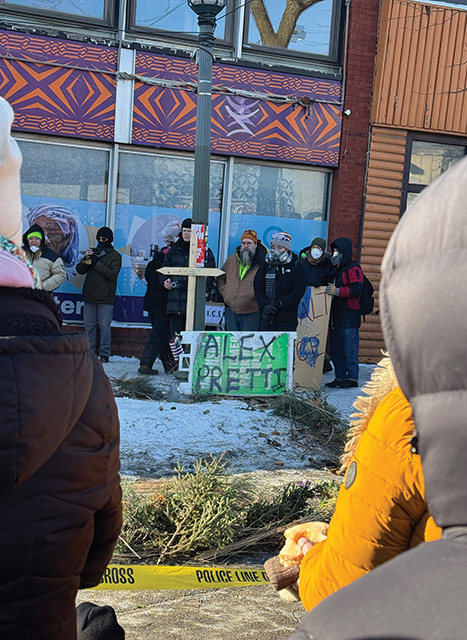Q: How does a judge become the presiding judge in juvenile court?
HCDC: Presiding judges are appointed by the district court’s Chief Judge. Judge Kappelhoff is currently the presiding judge of Hennepin County District Court’s Juvenile Court. He was appointed to this leadership position by the district’s Chief Judge Todderick Barnette.
Q: How is juvenile court presently structured?
HCDC: There are 10 judges assigned to Juvenile Court in Hennepin County District Court. All the judges handle juvenile delinquency, child protection and adoption cases.
Q: What are the responsibilities of the presiding judge in juvenile court?
HCDC: Among the Juvenile Court Presiding Judge’s many responsibilities is managing the overall operations of Juvenile Court, which primarily involves ensuring that the court operates effectively and efficiently to provide the best possible experiences for the children and families who have matters pending in the juvenile court system. Judge Kappelhoff, the current Juvenile Court presiding judge, has responsibilities that also include meeting and collaborating regularly with the Juvenile Court stakeholders, including representatives from the Hennepin County Attorney’s Office, Probation Office, the Public Defender’s Office, Attorney Representation Service, Psychological Services and the Juvenile Detention Center. Also, like the other judges in Juvenile Court, Judge Kappelhoff carries a caseload of delinquency, child protection and adoption cases.
Q: Are carjacking cases or auto theft cases open to the public?
HCDC: Juvenile delinquency cases involving young people who are 16 years old or older are generally open to the public, although there are some exceptions to this general rule.
Q: What happens to juveniles who either plead guilty (“adjudicated” is the juvenile court term) to auto theft or carjacking or are adjudicated of these offenses? Specifically, what sentencing (dispositions) does the court have available to it? Is there a lack of facilities or options for juveniles, and, if so, what do you see as a short-term solution for these juveniles who commit these offenses? What about a long-term solution?
HCDC: There are a variety of possible outcomes or dispositions for young people who are adjudicated delinquent on auto theft and/or carjacking cases. The dispositions will generally depend on a variety of factors, including, but not limited to, the nature of the offense, the needs of the young person, public safety, services and programs available and prior delinquency history of the young person.
The general goals of any disposition that is imposed are to rehabilitate the youth, address public safety issues, and provide services, treatment and other programming that will return the youth to law-abiding behavior. Some of the possible options include:
- Participation in and successful completion of a community-based treatment program;
- Participation in mental health services, including individual and group counseling, or, depending on the nature of the youth’s mental health needs, the youth may be placed at a residential or community-based mental health treatment program;
- Placing the young person at a residential treatment program, which would involve an out of home placement of the youth;
- Certifying the young person to adult court where adult sanctions, including adult prison time, could be imposed;
- Placing the young person on Extended Jurisdiction Juvenile Probation, where the youth would receive an adult sentence that is stayed and would be placed on juvenile probation until his/her 21st birthday;
- Participation in and successful completion of a restorative justice program; or
- Participation in community service or a sentence to service program.In addition, to help address the recent increase in auto theft and carjacking cases, the Court, in collaboration with the juvenile justice stakeholders, recently implemented new procedures, policies, and programs to specifically address youth involved in these offenses. The Court developed these new polices based on a collaboration with the juvenile court stakeholders, as well as with input and feedback provided by community members during community judicial listening sessions. The new policies and programs include:
- All youth charged with Fleeing a Police Officer in a Motor Vehicle will be detained at the Juvenile Detention Center and must appear before a judge within 36 hours.
- All youth charged with carjacking are assigned to a single judge to prioritize these cases in juvenile court, which will allow for more intensive supervision and focus on the youth charged with these offenses.
- New Auto Theft Expedited Court Process: This new court process expedites the processing of all cases involving youth charged with auto theft.
- New Pre-Trial Services Program: This new program run by juvenile probation is designed to intervene earlier with youth charged with auto theft or other delinquency offenses by offering youth additional services, treatment, and programming immediately after being arrested and while their case is pending.
- New Behavioral Mental Health Navigator Program: This new program provides additional services and assistance for young people with mental health challenges and their families as they navigate the mental health system.
Q: Is there anything else you would like to add in terms of addressing the concerns of the public about these cases?
HCDC: The Court is certainly mindful of the concerns of the public regarding juvenile crime in our community. Members of the Juvenile Court bench have participated in three community listening/dialog sessions over the past three months. These sessions were well attended and provided the Court with an opportunity to hear directly from community members on their concerns regarding juvenile crime, and particularly car thefts and carjacking incidents. It is important to note that the juvenile justice system involves many stakeholders who have independent and important responsibilities to address juvenile crime in our community. This includes the Court, as well as prosecutors, law enforcement officials, and probation. All of these stakeholders are working to implement procedures and policies within their area of responsibility to address the concerns raised by the community.





